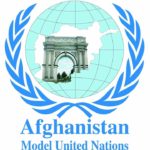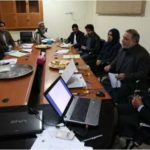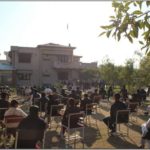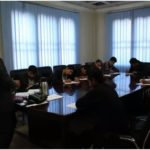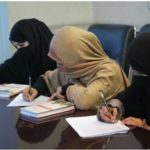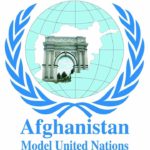Model United Nations Conference Program
With financial assistance from the United States Embassy in Kabul, WADAN is implementing the Model United Nations (Model UN) Project in collaboration with state and non-state institutions in Afghanistan. The project started September 19, 2016 and will continue through September 14, 2017.
The purpose of this project is to serve the long-term objectives of building ties among Afghan citizens and strengthening checks and balances on government via a strengthened civil society through training and providing opportunities for university students to learn about and practice UN procedures in a Model United Nations Conference to be organized in Kabul in August 2017.
A total of 125 eligible students are being selected from Law and Political Sciences and Journalism Faculties of universities and institutes of higher education in Balkh, Herat, Kandahar, Nangarhar and Parwan Provinces. These students will act as delegates to the Model UN Conference representing the countries assigned to them. The project will engage male and female Afghan youth in developing important skills critical to Afghanistan’s national development and for the students’ academic success. These skills include but are not limited to public speaking, debating, critical thinking, conflict resolution, in-depth research, leadership, communication, teambuilding, and the English language.
As part of this effort, WADAN will familiarize the participating students with the United Nations procedural rules and points and motions. This experience will provide the skills necessary and encourage the participating students to promote the culture of diplomacy and dialogue based on mutual respect for each other in addressing issues of global, regional and national interests.
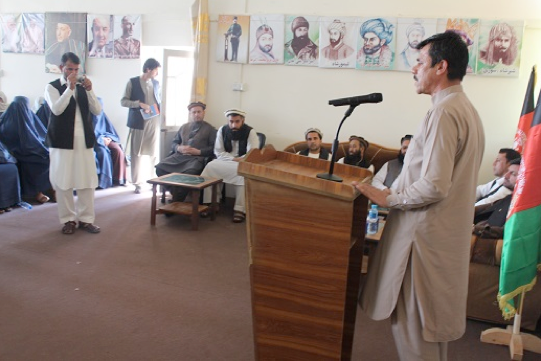
WADAN conducted an opening ceremony for assets distribution of in the Targeting the Ultra Poor (TUP) Program in Laghman Province, funded by the World Bank through the Microfinance Investment Support Facility for Afghanistan (MISFA). The assets are cows that were requested by families participating in TUP. The event was held at the Information and Culture Department Hall on Sunday, May 8, 2016.
Qari Abdul Fatah, one of the beneficiaries, thanked WADAN and was particularly appreciative that WADAN had used several strategies in order to accurately identify the poorest of the poor families. WADAN’s selection strategy included coordination meetings with government and non-government stakeholders, the traditional, and religious and community leaders. Gatherings for the people of the participating districts introduced to them the ultra-poor families who were chosen.
With support from the World Bank through MISFA, WADAN is implements the Targeting Ultra Poor Project (TUP) in the districts of Sarkano, Narang, Chawki and Center Asadabad in Kunar Province. The TUP-WADAN team identified the socioeconomically most vulnerable families and the program is designed to assist them succeed using Livestock, Health, Social and Livelihood as the vehicles of positive change. TUP seeks to improve lives through increased income, educating the children, and attending to food security and improved nutrition and healthcare on a sustainable basis.
Ghiasuddin is 39-years-old and lives in Damkali Village, Asadabad with his wife and seven children. He formerly worked for daily wages in the Asadabad bazaar and his wife did domestic work for their neighbors in exchange for food. Their son collected wood and plastic for cooking and heating. After selection as a TUP beneficiary Ghiasuddin’s family received a cow and a monthly stipend. He was trained in small business management and banking.
Now his son and daughters attend school. Through monthly savings he purchased a solar separator to make cream and yogurt that is sold after the family takes what it needs for their meals.
Ghiasuddin, his family, and his community are also pleased with the ongoing training that when shared benefits many and contribute to more stories of success in Dam Kali.
Ghulam Sakhi Dehnawi, WADAN’s TUP Project Coordinator, introduced the activities done by WADAN particularly those that focused on the Eastern Region. He mentioned the importance of the TUP and stated the major expectations from the project stakeholders. He emphasized that WADAN is committed and would make all efforts to ensure the success of TUP.
TUP Steering Committee Members handed over the cows to the beneficiaries and advised them to take good care of their animals and wished them success in their lives.

Kuchi Health
Mobile Health Teams (MHT) Kuchi Survey
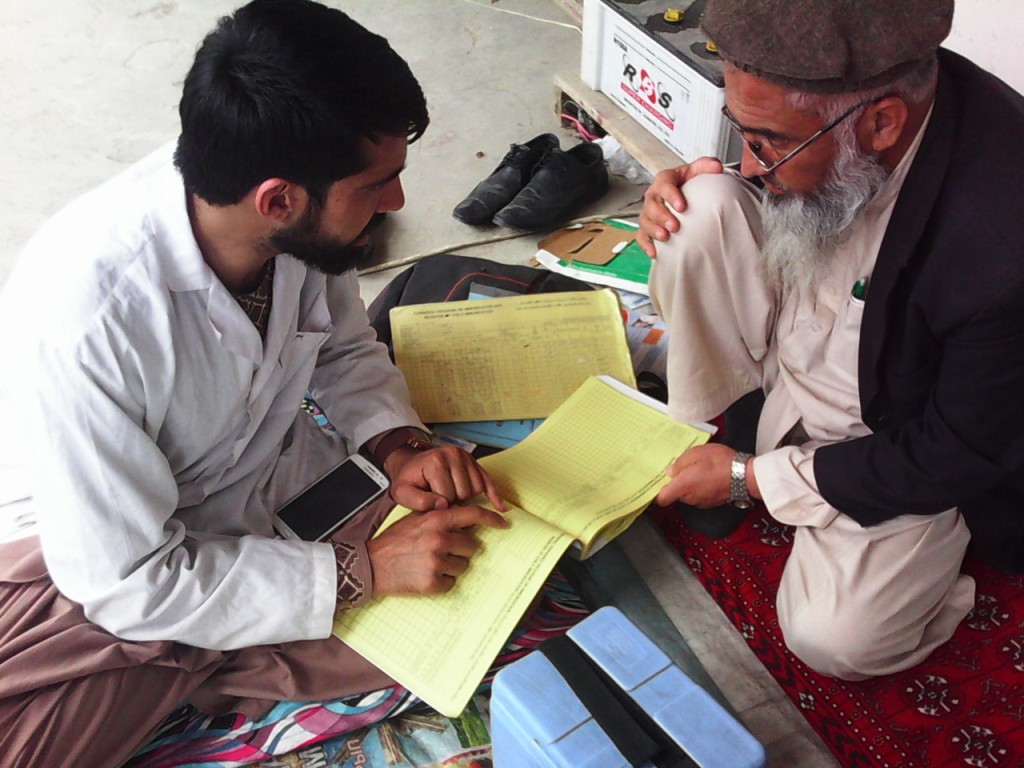
The Basic Package of Health Services (BPHS) was envisioned by the World Health Organization to provide equitable access to a bare minimum of essential primary health services for the entire population of Afghanistan, with a focus on rural areas. Program services include pre- and post-natal care, child health and immunizations, and family planning. BPHS has improved the provision of primary and secondary health care services through its network of district hospitals, community health centers, basic health centers and health posts using the wheel and spoke model. However, accessibility due to topographical challenges and scattered pockets of population compounded by segregated development and the lack of infrastructure such as roads and bridges has raised concerns about actual coverage.
Afghan nomads, known as Kuchi, have slowly over decades lost much of their traditional lifestyle and livelihoods due to conflict, drought and market competition. They are Pashto speaking people, mostly from the south and east of Afghanistan, who have traditionally been nomadic pastoralists. Before the introduction of roads and truck companies in the 1950s and 1960s, Kuchi camel caravans were important means of trading goods across Afghanistan. Their way of life has changed much during and since the 20th century wars began. As a result of land mines and the severe droughts of 1971-72 and 1998-2002, the Kuchis are said to have lost 75% of their livestock. Warlords and warfare blocked both their migration routes and access to summer pastures, and the traditional system of pasture rights has disintegrated. As a result of these changes, the majority of rural Kuchis are now semi-sedentary, living in the same winter area every year. Increasing numbers have purchased land where feasible and settled. Others, especially those who settled in the northwest of the country during Taliban times, have become 70% of the internally displaced persons now settled in or near Kabul, Herat and Kandahar Cities.
Kuchis are among the poorest households in Afghanistan. They are a population whose daily consumption of food and non-food items is estimated to be below the national poverty line. Most rural and displaced Kuchis live in tents or temporary shelters. They lack access to safe drinking water and sanitation. All are vulnerable to infection spread by animals since the women are responsible for caring for sick animals as well as their children and preparing food. And Kochi literacy rates are the lowest among all Afghans.
The WADAN MHT project survey and evaluation was to provide the Ministry of Public Health with detailed evidence on the implications of the project’s approaches and interventions on the overall health situation of the rural Kuchi population, and any project implementation related issues. The evaluation provided an independent review of MHT’s effectiveness, efficiency, equity and sustainability.
Through interviews with MHT clinic patients and staff, and community members WADAN’s survey team determined that the Mobile Health Teams provide essential health services to the widespread rural Kuchi population and further learned they would like to have more health services. Their primary request was for holistic services that include a wider range of diagnostic services and medicines, longer and more frequent visits by the MHTs, and more well-staffed permanent clinics.

